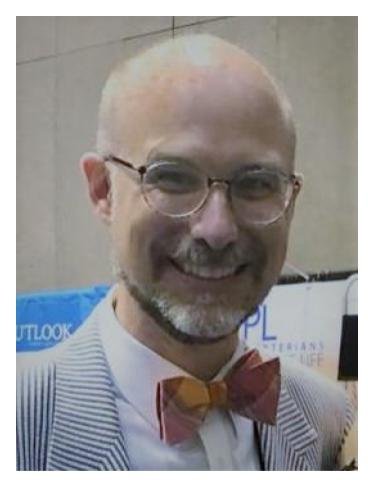We Have Been Too Silent For Too Long
Solidarity Delegation, Reflection #11
By, Dr. Robert Trawick, IPMN Co-Moderator
Beginning on February 15th, a group of 35 Presbyterians and ecumenical partners began a journey through East Jerusalem and the West Bank, meeting with faith partners and leaders of Palestinian civil society. You can find our statement of purpose here. We have now returned to the safety and security of our lives. Safety and security are essential to any human wellbeing, but they are rumors only to our Palestinian siblings. We know, even more forcefully now, that we in the United States are complicit in a genocide in Gaza and an ethnic cleansing in East Jerusalem and the West Bank that our country is funding and seems to lack the will to change.
I went into our trip thinking that it would be primarily a fact-finding tour, that we would come out of it with more understanding of the situation, with a different story to tell than the one we are being fed. And to some degree, we now know that narrative. But the story really isn’t all that different from the one those of us who have been involved in advocacy on the issue already know. The intensity may have changed, but the tactics remain the same: home demolition, forced displacement, detention, murder, erasure of the Palestinian presence in their own land.
What emerged as we met with our siblings throughout East Jerusalem and the West Bank was another purpose as well. Presence became more important than any facts we learned. Without exception, we were met with gratitude. Palestinians have felt deeply isolated in the months since October 7th, and the overwhelming feeling in the region is that they have been forgotten. The streets are empty, businesses are shuttered, and while the eyes of the world are on Gaza, daily life in the occupied territories becomes ever more intolerable. There was thankfulness for our presence, but along with it a sense of abandonment. Palestinians want to know where we have been.
The trip was not a joyless one. Despite all of the anger, frustration, and fear that has settled over the region like a putrid smog, there is also sumud, steadfastness, a fierce determination to live a full life in the face of forces determined to exterminate it. We saw the students of the Alrowwad Cultural Center in the Aida refugee camp practicing a dance performance, with all the excitement of performers sharing their art with an audience. We saw the determination to build a better, more fruitful land in the work of Professor Mazin Qumsiyeh, creating a future for sustainable agriculture at the Palestine Institute for Biodiversity and Sustainability. And everywhere, we saw the famous hospitality of the Palestinian people, the calling to share with the stranger, no matter the increasingly limited resources. Folks are weary and disheartened to be sure, but still they live.
So what to do now? As we have been reminded, our way of issuing statements and passing overtures is not enough. We may feel overwhelmed by the enormity of the disaster and we may feel far from the levers of power that can change it. But we have a responsibility to tell the story loudly and in every venue. The first concrete thing we can do is to change the narrative. It is not the last step, but it is a crucial one. If our country continues to believe that this is a war of defense, if we refuse to say the word genocide, then nothing will change in the United States, and Israel’s impunity will continue. We have work to do, contributions to make, and we have been too silent for too long.
Dr. Robert Trawick
Dr. Robert Trawick is a Ruling Elder currently serving as the General Presbyter for Albany Presbytery. Prior to this call, Rob taught philosophy and religious studies for over twenty years at St. Thomas Aquinas College. He has served the Presbyterian Church (USA) as a member of the Advisory Committee on Social Witness Policy and currently serves as the co-moderator of the Israel/Palestine Mission Network.


